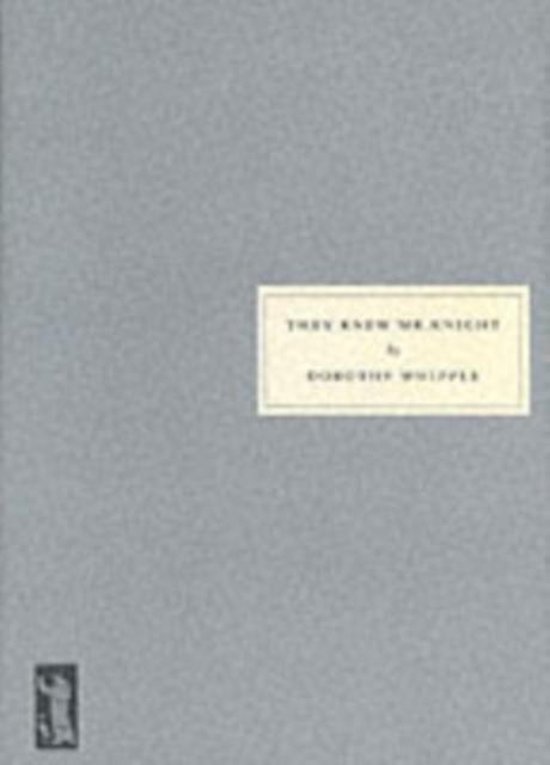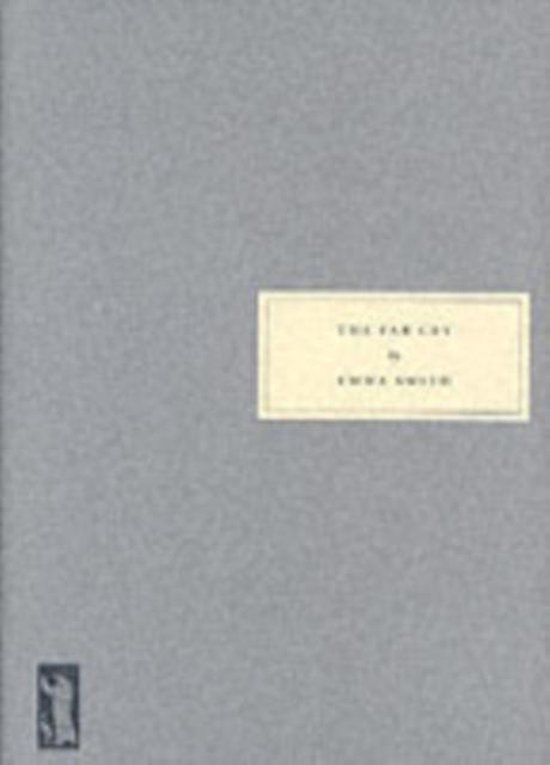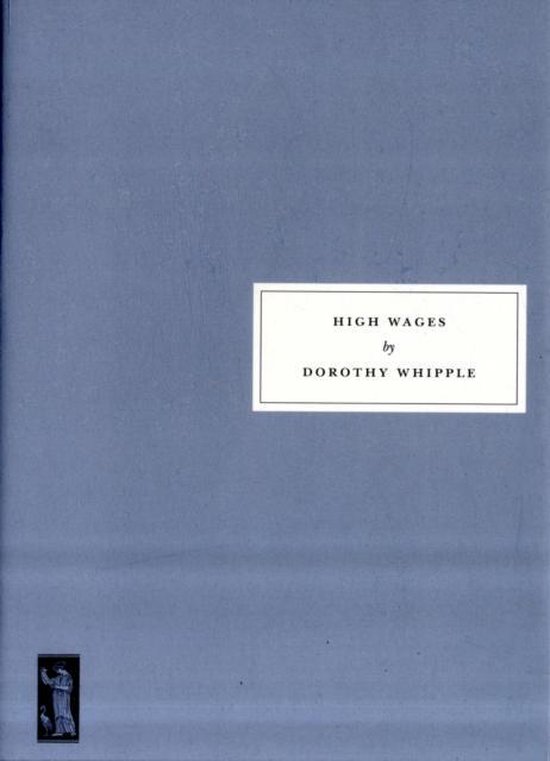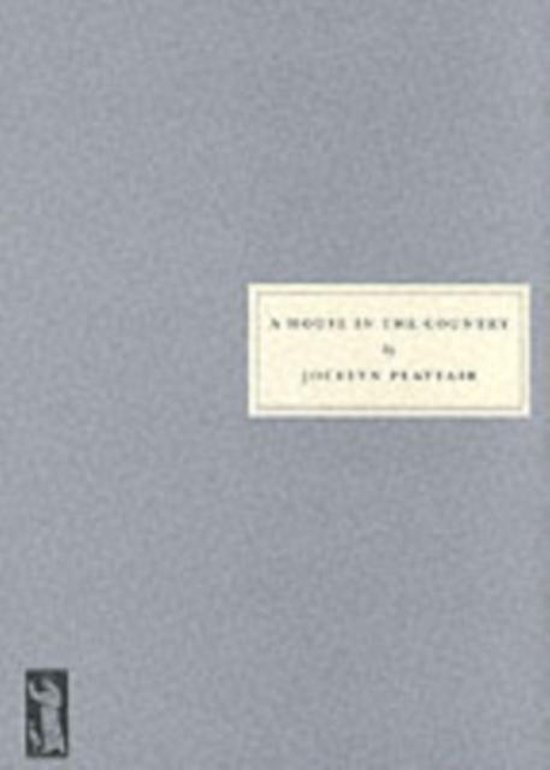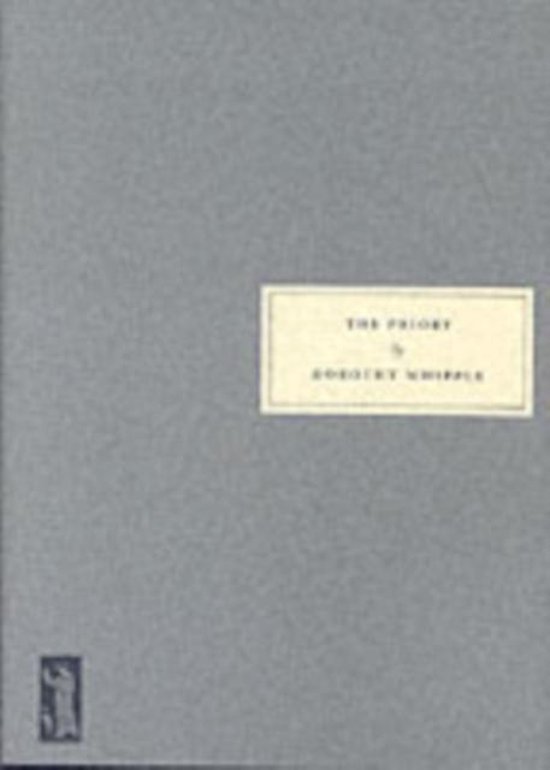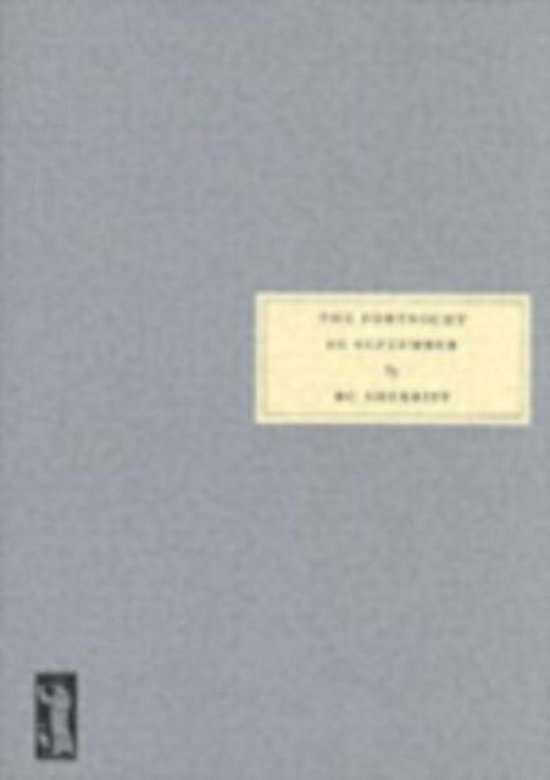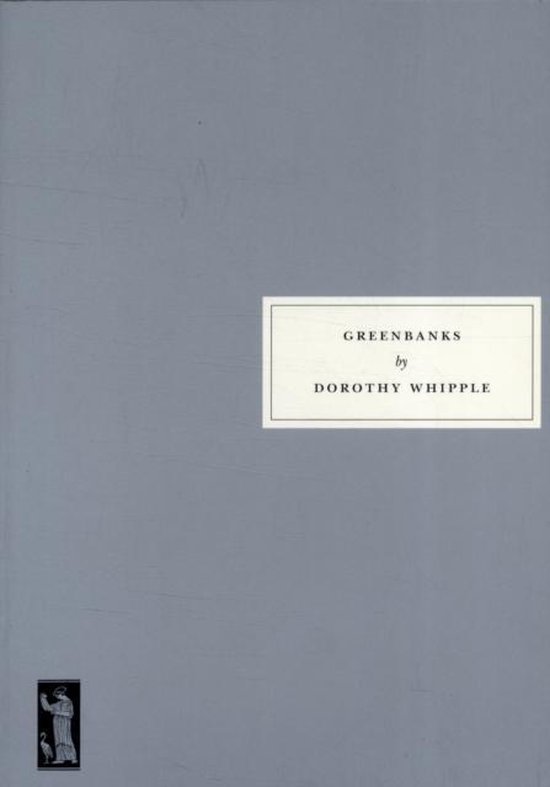
Greenbanks
Persephone Book No. 95, was chosen ‘as the Choice of the Book Society’ in the summer of 1932. ‘Not a Recommendation, which is all I would have hoped for if I had given it a thought, but the Choice! I can’t believe it. I am stunned,’ wrote Dorothy Whipple in her diary.
When thousands of Book Society members received their Book Society News some weeks later, the novelist Hugh Walpole wrote about Greenbanks at length. It had been chosen because of its creation of character. ‘To put it plainly, in Dorothy Whipple's picture of a quite ordinary family before and after the war there is some of the best creation of living men and women that we have had for a number of years in the English novel. She is a novelist of true importance.'
He went on: ‘I believe Greenbanks will be remembered for a long time to come because of the characters of two people in it, the grandmother Louisa and the granddaughter Rachel. In them Dorothy Whipple has performed splendidly the great job of the novelist, which is to increase for us infinitely the population of the living world. Every character in this quiet book is alive. Louisa is an old woman rather muddle-headed, generous, sometimes irresponsible, always governed by the emotions of a loving, anxious heart, which is at the same time never sentimental, who has become as real to me as any of the ladies in Cranford. Rachel is alive from the first instant. She, perhaps, is more of an achievement than Louisa, for kindly dear old women are frequently successful in novels, but a child who is real and charming and quite natural, moving through those difficult years from 10 to 18, cannot be easy to create. This is a quiet and a true book. It is also a beautiful book.’
The Spectator reviewed Greenbanks at the end of September 1932, after Cold Comfort Farm (of which it preferred the first half). It said: ‘Greenbanks is a pleasant, quiet, delightful domestic book, lifted head and shoulders above the ranks of pleasant, quiet, delightful domestic books by the uncanny accuracy of the portraiture and the lightness and delicacy of its touch. Louisa lives at the house, with her brood gathered more or less around here. Jim and Ambrose, her virtuous and self-satisfied son and son-in-law, make league against Charles, her rolling-stone son, whom she adores. Laura, her daughter, marries the wrong man out of pique. It is all perfectly ordinary and far from undistinguished. The portraits of Laura, Rachel, and Ambrose (particularly Ambrose) are as good as they can be.’
And Charles Lock, Professor of English Literature at the University of Copenhagen, who has written the Persephone Afterword, observes: ‘By 1932 there were many novels protesting about the obstacles faced by young women. There are still not many novels that can so stealthily take down male pretensions and presumptions.’ It is Ambrose who is pilloried, Letty who is the tragic figure, poor Letty who ‘had missed the great love she had dreamed of as a girl, but she thought about it no more. Her wishes had changed as she grew older; she now only wanted to get away by herself, to enjoy life in her own way. “It’s as though I have grit in my wheels,” said Letty to herself. Ambrose was the grit.’
Greenbanks was Dorothy Whipple's third novel – her first was Young Anne (1927) and her second High Wages (1930), Persephone Book No. 85 (we have also published Someone at a Distance Persephone Book No. 3, They Knew Mr Knight No. 19, The Priory No. 40, They Were Sisters No. 56 and The Closed Door and Other Stories No. 74.) Yet the first mention of this, her third novel, was despairing: ‘I cannot get on with Greenbanks. Shall I ever have done with it? However, when she handed the book over to her agent, and was ‘so relieved to get rid of the book,’ she was ‘sorry to see Louisa, Rachel, Kate, Letty, Ambrose – all of them, troop silently away. They have finished with me…. ‘ Quite quickly there was a ‘mostly nice’ report from her publisher’s Reader pointing to ‘the very shrewd and natural gift of depicting her middle-class characters etc, etc.’ Then her English publisher called it ‘much her best work and the former was good’ and her American publisher wrote: ‘Greenbanks is one of the loveliest books I have read in a long time.’ When she received Hugh Walpole’s Book Society piece, she copied down phrases ‘so that I can turn to it when I feel, as I often do, that I can’t write for toffee.’ And she noted: ‘I can hardly believe my book is turning out like this… I wonder what my self-deprecatory little grandmother would have thought of herself in this book. She would have been amazed. I am sure she never dreamed that she was being anything, or doing anything that would remain in my mind all these years.’
When thousands of Book Society members received their Book Society News some weeks later, the novelist Hugh Walpole wrote about Greenbanks at length. It had been chosen because of its creation of character. ‘To put it plainly, in Dorothy Whipple's picture of a quite ordinary family before and after the war there is some of the best creation of living men and women that we have had for a number of years in the English novel. She is a novelist of true importance.'
He went on: ‘I believe Greenbanks will be remembered for a long time to come because of the characters of two people in it, the grandmother Louisa and the granddaughter Rachel. In them Dorothy Whipple has performed splendidly the great job of the novelist, which is to increase for us infinitely the population of the living world. Every character in this quiet book is alive. Louisa is an old woman rather muddle-headed, generous, sometimes irresponsible, always governed by the emotions of a loving, anxious heart, which is at the same time never sentimental, who has become as real to me as any of the ladies in Cranford. Rachel is alive from the first instant. She, perhaps, is more of an achievement than Louisa, for kindly dear old women are frequently successful in novels, but a child who is real and charming and quite natural, moving through those difficult years from 10 to 18, cannot be easy to create. This is a quiet and a true book. It is also a beautiful book.’
The Spectator reviewed Greenbanks at the end of September 1932, after Cold Comfort Farm (of which it preferred the first half). It said: ‘Greenbanks is a pleasant, quiet, delightful domestic book, lifted head and shoulders above the ranks of pleasant, quiet, delightful domestic books by the uncanny accuracy of the portraiture and the lightness and delicacy of its touch. Louisa lives at the house, with her brood gathered more or less around here. Jim and Ambrose, her virtuous and self-satisfied son and son-in-law, make league against Charles, her rolling-stone son, whom she adores. Laura, her daughter, marries the wrong man out of pique. It is all perfectly ordinary and far from undistinguished. The portraits of Laura, Rachel, and Ambrose (particularly Ambrose) are as good as they can be.’
And Charles Lock, Professor of English Literature at the University of Copenhagen, who has written the Persephone Afterword, observes: ‘By 1932 there were many novels protesting about the obstacles faced by young women. There are still not many novels that can so stealthily take down male pretensions and presumptions.’ It is Ambrose who is pilloried, Letty who is the tragic figure, poor Letty who ‘had missed the great love she had dreamed of as a girl, but she thought about it no more. Her wishes had changed as she grew older; she now only wanted to get away by herself, to enjoy life in her own way. “It’s as though I have grit in my wheels,” said Letty to herself. Ambrose was the grit.’
Greenbanks was Dorothy Whipple's third novel – her first was Young Anne (1927) and her second High Wages (1930), Persephone Book No. 85 (we have also published Someone at a Distance Persephone Book No. 3, They Knew Mr Knight No. 19, The Priory No. 40, They Were Sisters No. 56 and The Closed Door and Other Stories No. 74.) Yet the first mention of this, her third novel, was despairing: ‘I cannot get on with Greenbanks. Shall I ever have done with it? However, when she handed the book over to her agent, and was ‘so relieved to get rid of the book,’ she was ‘sorry to see Louisa, Rachel, Kate, Letty, Ambrose – all of them, troop silently away. They have finished with me…. ‘ Quite quickly there was a ‘mostly nice’ report from her publisher’s Reader pointing to ‘the very shrewd and natural gift of depicting her middle-class characters etc, etc.’ Then her English publisher called it ‘much her best work and the former was good’ and her American publisher wrote: ‘Greenbanks is one of the loveliest books I have read in a long time.’ When she received Hugh Walpole’s Book Society piece, she copied down phrases ‘so that I can turn to it when I feel, as I often do, that I can’t write for toffee.’ And she noted: ‘I can hardly believe my book is turning out like this… I wonder what my self-deprecatory little grandmother would have thought of herself in this book. She would have been amazed. I am sure she never dreamed that she was being anything, or doing anything that would remain in my mind all these years.’
| Auteur | | Dorothy Whipple |
| Taal | | Engels |
| Type | | Paperback |
| Categorie | | Literatuur & Romans |
